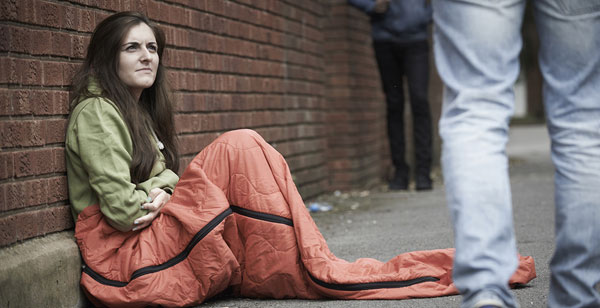According to the official Spring count carried out by Dublin Region Homeless Executive and Dublin Simon Community a total of 91 people were found to be sleeping rough across Dublin.
The count was carried out over the week of March 28 to April 3.
This figure represents a reduction of 34 persons (27%) on the same period last year, with 125 individuals found to be rough sleeping during the week-long Spring rough sleeper count in March/April 2021.
It is also a reduction of 3 persons (3%) on the Winter Count 2021, when 94 people were found to be rough sleeping.
The count was supported by the Peter McVerry Trust Housing First Intake Team while additional outreach workers were deployed to ensure intense coverage of city centre areas.
Staff in all four Dublin local authorities and An Garda Síochána provided additional information about people who were rough sleeping, especially those in isolated areas.
Of the 91 people met rough sleeping, 72 had previously been assessed by the DRHE for homeless services, and the remaining 19 persons were being actively engaged with by the Outreach team be assessed by homeless services.
The majority of the people confirmed as rough sleeping were male, Irish and aged between 26-45 years while 79% of confirmed rough sleepers were linked with one of the four Dublin local authorities.
Overall, 31% were using tents and 69% were not and 13 individuals were found rough sleeping in both the Winter 2021 and Spring 2022 counts.
A number of these are being targeted for a Housing First response, which will provide them with permanent housing and visiting supports to help them sustain their home.
Nine individuals (12%) recorded as rough sleeping had an active tenancy.
In the April 2022 count, 20 individuals (28%) accessed Emergency Accommodation during the week.
The majority (94%) of rough sleepers had accessed Emergency Accommodation at some stage prior to the count week.
According to Dublin City Council, it can take “several intensive engagements by the Outreach team with people who are rough sleeping to support them into emergency accommodation, but in the vast majority of cases the team are successful in doing so within a short time frame.
“94% of those found rough sleeping during the Spring 2022 count had used homeless accommodation in the past, 63% at some time in the 3 months prior to the count, and 28% had an open booking for emergency accommodation on at least one of the nights they were found to be sleeping rough.”
